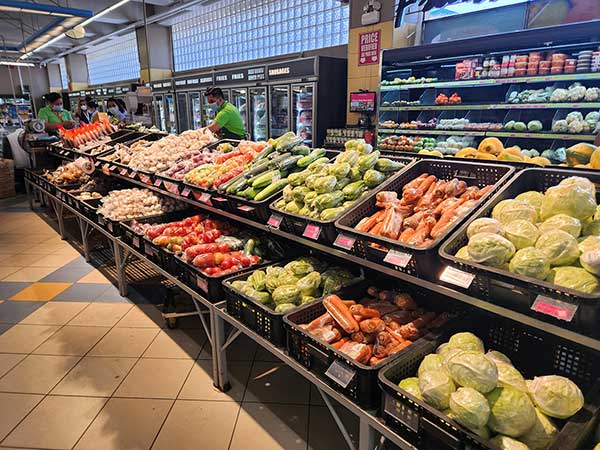
President Ferdinand R. Marcos, Jr.’s recent State of the Nation Address (SONA) underscored the administration’s commitment to achieving food security and inclusive economic growth through comprehensive government efforts.
National Economic and Development Authority (NEDA) Secretary Arsenio M. Balisacan highlighted these initiatives during the Post-SONA Discussions on July 23, outlining the steps being taken to implement the Philippine Development Plan (PDP) 2023-2028.
“The whole government is prioritizing the Filipino people’s food security to ensure a sufficient and affordable supply of food in the short term while carrying out interventions to boost agricultural productivity and competitiveness in the medium term,” Balisacan said.
The administration aims to address food security challenges exacerbated by supply chain disruptions, geopolitical tensions, and extreme weather conditions like El Niño, all intensified by climate change.
To mitigate these issues, the government has implemented a series of measures, including targeted social assistance such as fuel subsidies and financial aid to farmers, retail rice traders, and low-income households.
Additionally, policies have been recalibrated to increase food supplies from the global market, such as Administrative Order (AO) No. 20, which streamlines administrative procedures and removes non-tariff barriers to agricultural imports.
President Marcos also signed Executive Order No. 62, updating the Comprehensive Tariff Program for 2024-2028 to manage food inflation and promote policy stability.
Despite recent declines in inflation, NEDA emphasizes the need for long-term solutions to improve agricultural productivity and ensure sustainable food security.
“Rightfully, the President identified the difficult—but necessary and urgent—interventions that we must commit to implement sustainably over the medium term. As we have said, there are no shortcuts. We have to massively increase our investments and support to the agricultural sector to raise the productivity and incomes of our farmers and enable them to become globally competitive as we strengthen their ability to meet the rising food demands of our growing economy,” Balisacan said.
The administration is also focusing on infrastructure development to enhance physical and digital connectivity, including farm-to-market roads and logistics networks, water supply, irrigation, and flood control.
These efforts aim to reduce post-harvest losses, diversify agricultural products, and ensure food reaches consumers even during natural disasters.
Balisacan noted improvements in the labor market, emphasizing the government’s efforts to enhance job quality.
“On the other side of the equation, we want Filipinos to have the ability to afford the goods and services they need to live decent lives. The challenge goes beyond reducing unemployment, which is already relatively low. More importantly, we aim to enhance the quality of the jobs available to our countrymen,” he added.
The underemployment rate reached a historically low level of 9.9 percent in May 2024, indicating better job quality.
NEDA also reported a significant decrease in poverty incidence, with 2.45 million Filipinos lifted out of poverty between 2021 and 2023.
The poverty incidence dropped to 15.5 percent in 2023 from 18.1 percent in 2021. This progress is attributed to inclusive economic growth, evidenced by rapid increases in average per capita income among poorer Filipinos.
Finance Secretary Ralph G. Recto echoed the positive outlook, emphasizing the need to sustain economic growth and human capital development.
“These figures, which are even lower than our 2023 targets, demonstrate that our strategies are working and that we are on track to achieve a single-digit poverty incidence of 9% by the end of the President’s term in 2028,” Recto said.
He highlighted the importance of managing inflation and increasing agricultural productivity to shield Filipinos from high food prices.
Recto also emphasized the need for efficient tax administration and collection to fund essential programs under the HEARTS (Health, Education, Agriculture, Roads and Infrastructure, Technology, and Security and Social Protection) framework.
Education remains a top priority, with the highest budget allocation to strengthen human capital.
The government is also focusing on social protection programs, including cash assistance to the poor, livelihood support, housing, and medical aid.
Infrastructure projects are being rolled out to boost competitiveness and create employment opportunities.




















